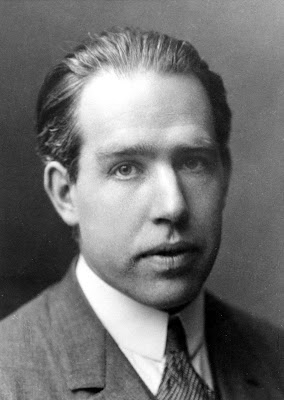Niels Bohr was born in October 1885 and later passed on in 1962. The Danish physicist has been a leading philanthropist and has been regarded as one of the most respected physicists of all times. His skills were of great help especially in the 20th century. He pioneered many things including the quantum concept which he was the first person to apply. This is a concept that restricted the energy that a system is using to some specific descriptive values. He also made remarkable contribution to the molecular and atomic structure. Rightly so, he was able to curve a notable presence with his skills and this made him receive the famous Nobel Prize for the category of physics back in the year 1992. Needless to say, his massive contribution to physics is perhaps his most noteworthy contribution of his lifetime. His involvement in Physics made a remarkable impact and brought about major changes.
Niels Bohr was the son of the late Christian Bohr and was married to Ellen. He dedicated almost his entire life to science particularly physics where he made an array of discoveries that have impacted positivity in today’s life. He grew up with his brother, Harald and both of them were prominent forces to mathematics discoveries. His interests in Physics were triggered by his father’s genius mind and his desire to see his son become a successful force to reckon in Physics.
Niels Bohr started his higher education at the University of Copenhagen where he first took his masters degree in Physics in the year 1909. This is arguably one of the best steps he made that alter transformed him to the great physicist that he was. He later pursued a doctor’s degree in 1909. It was in the same university that Niels first undertook an experimental investigation about the surface tension through the means of oscillating fluid jets. This particular work was very significant in his career and it was carried out in his father laboratory. He also received a prize for this remarkable effort that was recorded in the transactions of royal society back in the year 1908.
The genius shifted his focus to theoretical studies and began by explaining properties through the electron theory. As a matter of fact, this was the basis of his quantum theory of radiation which later became very famous in the world of Physics. Niels Bohr continued pursuing theoretical studies at Cambridge in 1912 and did a lot of experimental works.
In the year 1992, the scientist was in Manchester where he launched a new venture into radioactive phenomena. It seemed his quest for more discoveries was the driving passion behind his skills. He later invoked his efforts and brains to further advance Ruther Ford’s initial discovery of atomic nucleus and made significant improvements on it. This made him make remarkable impact on the study of atoms and their structure by coming up with more solutions and studies to what Ruther Ford had already discovered. His moves were simply strategies that were driven by ideas and success was as a result of his determination of what he was doing.
Niels Bohr was also a lecturer in several of the public universities and in 1913 he lectured at the University of Copenhagen. He also held a similar position at the University of Victoria in Manchester. His skills saw him being appointed a professor for the theoretical physics department in the year 1916. He became the leading light at the institute for theoretical study of Physics and this is a position that he held until his demise.
Indeed, it can plausibly be argued that Niels Bohr made a lot of impact on the research in science. He was successful because he always remained alert and he always had a passion and desire to discover new things. His specific interest in the development of molecular biology also contributed largely to the Physics of today. The scientist also held major positions in different institutions. For instance, he was the president of Royal Danish academy of science and he also served as the executive chairman of Danish Atomic Energy commission. The professor will forever linger in many people’s mind and indeed, most of the scientific things people enjoy today were as a result of his mighty brain.

Comments
Post a Comment